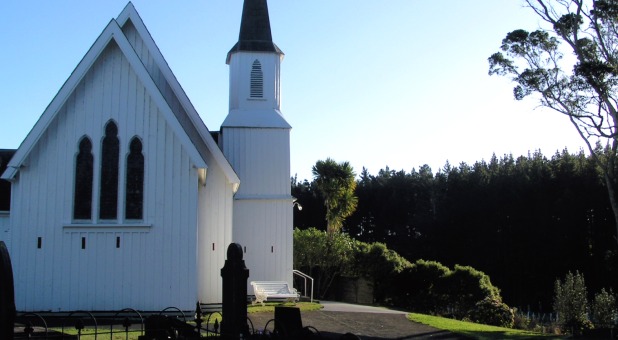Over the past 15 years the body of Christ has made great advances regarding the call of believers to influence every mountain of culture for Christ for societal reformation (cultural mountains such as religion, family, education, politics, media, arts/entertainment, economics and more).
For too long the local church has functioned as a straightjacket limiting the expression of Christ to merely spiritual things and the life to come. The results have been catastrophic as the church abandoned culture, which has led to propitious moral decay in every cultural mountain!
In response to this unfortunate dualism between the spiritual and natural order many (including me) have called for a theological paradigm shift calling the church back into the kind of engagement that validates, equips and commissions believers into their marketplace vocations in accordance with the cultural mandate of Genesis 1:28.
Consequently, there have been some extremes in various directions as we are all grappling with how to bring the lordship of Christ over all creation.
In general, many evangelicals preaching the kingdom are in virtual agreement in regards to their goals but have differences regarding the definition of terms, understanding the nature and role of the church, and methodological approaches.
The following are just some of the issues many of us are grappling with:
1. Is the Church the Kingdom of God?
The kingdom of God rules over all (Ps. 24; 145:11-13; Dan. 4:34). Thus, the kingdom of God is the influence or government of God that emanates from the throne of God, which is in heaven. The church is not the kingdom but is the main agent and representative of the kingdom and should function as the salt of the earth and light of the world (Matt. 5:13-16).
In history, many in historic denominations such as the Roman Catholic Church have taught that their corporate church body is the kingdom of God, which led to a dichotomy between the sacred and secular. This also resulted in centralizing power into the hands of the church leaders, which in the past has resulted in the Roman church having political and economic power even greater than the kings of the earth! With this view, the church is the kingdom of God on earth!
Today, many evangelicals in Catholic paradigm countries take the message of the kingdom and apply it to their own local churches in a way that leads to building their own political and economic empires instead of empowering their marketplace leaders to influence culture. Whenever too much power is centralized into the hands of one entity (including the church) corruption and ego-driven tyranny can soon follow!
2. Is the Church Part of the Religion Mountain?
Many in the movement say the church is one of the cultural mountains we have to influence. However others, such as myself, take a position in which the church, as the main representative of the kingdom, is part of the mountain of the Lord (Is. 2:2-3) that should influence every cultural mountain. The church is not the kingdom but is in the kingdom as its hierarchy. Thus, the church is called to represent and influence the whole earth.
If the church were in the religion mountain then there would be confusion between the nature and mission of the church, between essence and outreach. Thus, it would be strange in my opinion to say our local church is in the religion mountain and then turn around and say we have to reach ourselves! No, I believe the true church is in the kingdom mountain that should influence the religion mountain, which would include nominal Christianity, Islam, Buddhism and every other religion of the world not rooted in Christ. Hence, I do not believe the true church is in the same mountain as Islam, Buddhism and Hinduism.
3. The Microchurch Versus the Nuclear Church
The term microchurch generally means an extension of the local church led by marketplace leaders who connect in their workplaces to make disciples and influence their cultural mountain. In my opinion, the micro church should only function as an extension or arm of the nuclear (local) church but never take the place of the nuclear church.
For example, there could be two or three gathered in the name of Jesus in the halls of political power to do a Bible study, or to band together to enact public policy with a biblical framework. But that does not mean they do not need to belong to a local (nuclear) church for apostolic equipping and pastoral care. Furthermore, Paul traveled with a lot of disciples but never once called his roving band a church (the mobile church concept). No, with his band he always established churches or went to already established local churches to strengthen them, but never called his group of traveling companions a church.
Of course, there may at times be extenuating circumstances in persecuted nations (China, Iran, etc.) in which believers have to find covert ways of banding together for discipleship (in their factories, or businesses, or prison cells) because a typical church gathering would be impractical. But it is very important that we never make the exception the general rule. Let’s follow Scripture for our general rule as well as allow for exceptions as the Lord leads.














































